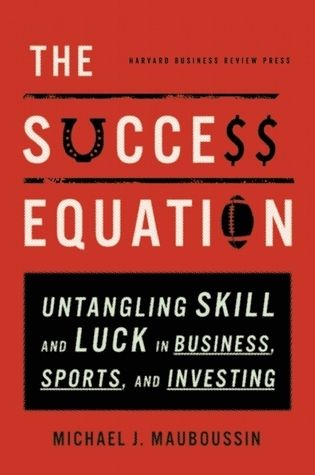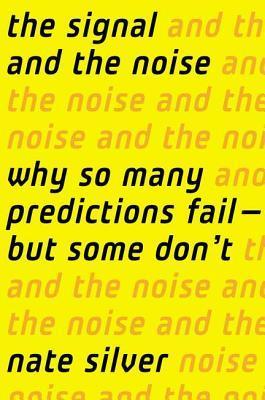Snippets about: Sports
Scroll left and right !
John McEnroe And The Fixed Mindset In Sports
Tennis great John McEnroe is a prime example of a fixed mindset athlete.
- McEnroe believed he should win because of his talent and got furious when he didn't. He blamed losses on everything but his own effort.
- His need to prove his superiority made him arrogant and combative with umpires, opponents, and even fans.
- After losses, McEnroe vowed he would redouble his efforts in training, but rarely did. He believed he should be able to win on talent alone.
- By contrast, rival Jimmy Connors had a growth mindset, relishing hard work and using failures to improve his game.
Section: 1, Chapter: 4
Book: Mindset
Author: Carol Dweck
Make The Leader Occasionally Disappear
Several leaders use a surprising tactic to build their team's self-sufficiency and problem-solving skills - they make themselves scarce at key moments. By leaving a strategic void, they create space for the team to step up and take charge of their own learning and performance.
- Gregg Popovich regularly huddles with his assistant coaches during timeouts but occasionally skips the player huddle, leaving them to figure things out
- The New Zealand All-Blacks rugby team has a standing policy that the coaches cannot attend the first 15 minutes of any practice; the players are expected to warm up and set the tone on their own
In each case, the leader's absence is not an abdication but a challenge and an opportunity. It sends the message, "You are capable of doing this yourselves, and I trust you to rise to the occasion."
The key is for the leader to scaffold these "missing leader" moments carefully - they work best when the team has a foundation of trust and shared purpose to build on.
Section: 1, Chapter: 6
Book: The Culture Code
Author: Daniel Coyle
Why Scouts Were Wrong About Dustin Pedroia
Red Sox star second baseman Dustin Pedroia illustrates the limits of traditional baseball scouting and the dangers of relying on conventional wisdom. Coming out of college, most scouts saw Pedroia as too small and unathletic to be a great MLB player, despite his impressive performance.
But by using comparable players and a deeper statistical analysis, forecasting systems like PECOTA saw Pedroia's true potential. Despite his unimpressive physique, Pedroia had elite bat speed, excellent plate discipline, and a stellar track record vs top competition.
Of course, the Red Sox still had to trust their own judgment enough to give Pedroia an opportunity. The point is not that data is always right and scouts are always wrong, but that forecasters need to think for themselves, dig beneath surface-level narratives, and weigh evidence in a fair-minded way.
Section: 1, Chapter: 3
Book: The Signal and the Noise
Author: Nate Silver
Sports on the Continuum
- Basketball statistics show high year-to-year correlations, a dispersed distribution of success, and strong predictive power - indicating a strong role for skill
- Hockey statistics show lower consistency, a more concentrated success distribution, and less predictive power - indicating a larger role for luck These statistical tools give us an objective way to assess the skill-luck balance in different domains and make better predictions.
Section: 1, Chapter: 3
Book: The Success Equation
Author: Michael Mauboussin
How Tournaments And Sports Rank Competitors
Many different tournament formats are used in sports to rank competitors, from March Madness to the World Cup. Each format is effectively a sorting algorithm.
The NCAA March Madness tournament uses a single elimination bracket. With 64 teams, it conducts 63 games total to (partially) sort the teams. It's similar to a merge sort, with successive rounds halving the remaining teams until a winner is crowned.
In contrast, a round-robin tournament where every team plays every other team would take 2,016 games to fully sort 64 teams. That's infeasible.
The World Cup uses a hybrid approach - a group stage where each group of 4 teams plays a round-robin, followed by a single elimination bracket. This balances the information gained from head-to-head matchups with the efficiency of elimination.
In general, more games or matches will yield a more reliable ranking, but also take more time. Tournaments trade off time and accuracy in their structure. But no tournament is perfect due to "noise" - an inferior team can beat a better on any given day. So even a full round-robin doesn't guarantee the "correct" ranking.
Section: 1, Chapter: 3
Book: Algorithms to Live By
Author: Brian Christian
Rugby Team Used By Harvard To Control Demographics
In 2013, Harvard University created a varsity women's rugby team, despite already having the most sports teams of any college. This let them recruit dozens of additional student-athletes. Admissions data shows that athletes are accepted at dramatically higher rates than non-athletes, even with significantly lower grades and test scores.
Rugby recruits skew heavily white and come from posh prep schools worldwide. Gladwell argues this is how Harvard maintains its desired "group proportions" and slyly practices affirmative action for affluent white applicants.
Section: 2, Chapter: 5
Book: Revenge of the Tipping Point
Author: Malcolm Gladwell
Blending Skill And Luck To Match Real-World Results
Mauboussin illustrates the skill-luck continuum using the example of the NBA draft lottery. In the lottery, the worst teams get the highest probability of winning the top draft picks, in an effort to maintain competitive balance.
Mauboussin and his colleagues simulated the draft lottery under two scenarios: one with pure luck (a weighted coin flip) and one with pure skill (the worst team always gets the #1 pick). They then compared the actual results to these two extremes.
The results showed that the real NBA draft lottery results fell almost exactly halfway between pure luck and pure skill, suggesting that the lottery system does a good job of blending luck and skill to achieve its intended purpose. This type of simulation - comparing real-world results to luck and skill extremes - can be a useful tool for placing activities on the skill-luck continuum.
Section: 1, Chapter: 3
Book: The Success Equation
Author: Michael Mauboussin
Using Variance To Measure Skill
Another approach to quantifying skill and luck is to use statistical concepts like variance and correlation. The idea is that skill contributes to "true" differences in performance that persist over time, while luck contributes random noise that cancels out over time. By measuring the variance in performance across different time periods, we can estimate how much of the total variance is due to skill (persistent differences) vs. luck (transient noise).
For example, if we measure the year-to-year variance in batting averages for a large sample of MLB players, we can calculate that about 50% of the total variance is explained by "true" skill, while the other 50% is due to luck. Similar calculations show that skill explains about 88% of the variance in NBA winning percentages, but only 62% in NFL winning percentages.
Section: 1, Chapter: 4
Book: The Success Equation
Author: Michael Mauboussin
The Myth Of The Natural Athlete
In the world of sports, the idea of innate talent is pervasive. Coaches, scouts, and fans are always on the lookout for "naturals" who seem to effortlessly excel. However, examined more closely, the stories of many sports greats like Muhammad Ali, Michael Jordan, Babe Ruth, and Wilma Rudolph reveal that their success came through extraordinary dedication and training, not just inborn gifts. The "natural talent" view belongs to the fixed mindset and ignores these athletes' incredible growth through practice and perseverance.
Section: 1, Chapter: 4
Book: Mindset
Author: Carol Dweck
The Paradox Of Skill Revisited
Chapter 10 revisits the paradox of skill and its implications for performance in various domains. The key points are:
- In many competitive domains, absolute skill levels have risen over time, but relative skill differences have shrunk. The best performers are not as far ahead of the pack as they once were.
- As a result, luck plays a larger role in determining outcomes than it did in the past. The paradox of skill states that luck becomes more important as skill improves.
- The paradox of skill helps explain phenomena like the decline of dynasties in sports, the increasing unpredictability of the stock market, and the high turnover rate of market leaders in business.
- To succeed in a high-skill world, you need to focus relentlessly on the factors you can control, have a resilient process that can withstand short-term luck, and set realistic expectations about sustainable advantages.
Section: 1, Chapter: 10
Book: The Success Equation
Author: Michael Mauboussin
The Paradox Of Skill: Why Bigger Advantages Lead To Smaller Edges
The paradox of skill states that as the overall skill level in a field increases, luck becomes more important in determining outcomes. Consider baseball as an example. As training techniques and technology have improved, the average skill level of MLB players has increased over time. But the dispersion of skill has decreased. The best players today aren't as far above average as the best players 100 years ago. The paradox has important implications:
- In highly skilled fields, small differences in skill can lead to big differences in outcomes, because luck plays a larger role
- Sustaining a competitive advantage becomes harder as rivals get better at copying best practices
- Past success becomes less predictive of future success
- Forecasting becomes more difficult, because luck drowns out skill
- The key lesson: don't assume that an edge will persist, especially in highly skilled, competitive domains. What worked before may not keep working.
Section: 1, Chapter: 3
Book: The Success Equation
Author: Michael Mauboussin
Books about Sports
Sports
Management
Psychology
Decision Making
The Success Equation Book Summary
Michael Mauboussin
The Success Equation is a comprehensive guide to understanding the relative roles of skill and luck in shaping outcomes, offering practical insights and tools for improving decision-making, performance, and predictions in a wide range of domains, from sports and business to education and investing.

Prediction
Decision Making
Economics
The Signal and the Noise Book Summary
Nate Silver
In The Signal and the Noise, Nate Silver explores the art and science of prediction, explaining what separates good forecasters from bad ones and how we can all improve our understanding of an uncertain world.



